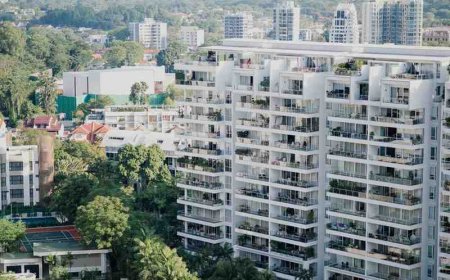Understanding the 7 Year Child Parent Route: A Guide for Families
Navigating the UK immigration system can be challenging, especially when it involves children and long-term residency considerations.

Navigating the UK immigration system can be challenging, especially when it involves children and long-term residency considerations. One such route that offers hope and legal clarity to families is the 7 Year Child Parent Route. This pathway is particularly significant for parents of children who have lived in the UK for seven continuous years, allowing them to regularise their immigration status based on their childs best interests.
What Is the 7 Year Child Parent Route?
The 7 Year Child Parent Route refers to an immigration pathway under the UKs Private Life rules. It allows a parent to remain in the UK if their child has lived in the country for at least seven consecutive years and it would not be reasonable to expect the child to leave the UK. This route is grounded in the principle that children who have established strong roots in the UK should be able to continue their life here with minimal disruption.
The route supports Article 8 of the European Convention on Human Rights, which protects the right to family life. It recognizes the emotional, educational, and cultural ties a child may have formed over a significant period.
Who Qualifies for This Route?
To be eligible under the 7 Year Child Parent Route, applicants must meet the following criteria:
The child must be under 18 at the time of the application.
The child must have lived continuously in the UK for at least seven years.
The parent applying must have a genuine and subsisting parental relationship with the child.
It must be unreasonable to expect the child to leave the UK.
This route can apply to single parents or both parents, provided that the relationship with the child is genuine and ongoing.
How Does the Application Work?
Applications under this route are made using the FLR(FP) form (Further Leave to Remain Family and Private Life). The application must be well-documented, with evidence to support:
The childs residence and life in the UK (school reports, GP records, letters from community members).
The parents involvement in the childs upbringing.
Reasons why it would be unreasonable for the child to leave the UK (social, emotional, educational factors).
Supporting evidence is key to demonstrating the strength of family bonds and the depth of the childs integration into British life.
Benefits of the Route
This immigration pathway offers several advantages:
Stability for the child and parent: It helps families stay together in a stable environment, promoting the well-being of the child.
Access to education and healthcare: With legal status, children and parents can access public services freely.
Future settlement possibility: It sets the foundation for Indefinite Leave to Remain (ILR) after a qualifying period, enabling long-term residence and eventually British citizenship.
Challenges and Considerations
Despite its benefits, the route is not without challenges:
Stringent documentation: Applicants must be prepared to provide extensive proof of the childs residence and their relationship.
Discretionary decisions: The Home Office makes a subjective judgment on whether its "unreasonable" for the child to leave the UK, which can vary from case to case.
Complex legal requirements: Legal advice is often necessary to improve the chances of success.
These challenges make it essential for families to understand the requirements thoroughly and prepare a detailed application.
Final Thoughts
The 7 Year Child Parent Route serves as a compassionate legal provision in the UKs immigration system, offering stability to children who have known no other home than the UK. For parents seeking to remain in the country based on their childs established life, this route provides a legitimate opportunity to stay and build a secure future together.
If your child has lived in the UK for seven years, exploring this immigration path could be a vital step toward achieving permanent stability and safeguarding your familys rights.



































